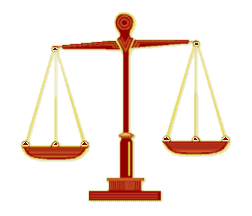Jury nullification facts for kids
Jury nullification happens when a jury decides to ignore the rules of the law or the evidence presented in court. This means they might choose not to follow the judge's instructions about the law.
Juries might do this if they feel a law is unfair, unjust, or wrong in some way. Sometimes, they might want to "send a message" about an important social issue. Even though juries have the power to do this, it is not usually seen as their official job. A jury's main duty is to decide a case based on the facts and the law.
Contents
Understanding Jury Power
Juries definitely have the power to make a decision that goes against the law. But whether they have the right to do so is a different question. If a jury decides a person is "Not Guilty," that person cannot be tried again for the same crime. This is because of a rule called double jeopardy.
When a Judge Intervenes
If a judge learns that a juror plans to ignore the law, the judge can remove that juror from the jury. Usually, judges do not tell jurors that they have the power to ignore the law. There are good and bad reasons for this.
Why Juries Aren't Told
Judges worry that if jurors knew they could ignore the law, it might lead to chaos in the courtroom. They fear jurors might just do whatever they want. However, jury nullification can sometimes be helpful. It can give valuable feedback about laws that might need to be changed. When used carefully, it can even lead to good outcomes.
Images for kids
-
Even before Bushel's Case, Sir Nicholas Throckmorton, a non-Episcopalian English Dissenter, was found not guilty by a jury despite the judges' dislike.
See also
 In Spanish: Nulificación juratorial para niños
In Spanish: Nulificación juratorial para niños
 | DeHart Hubbard |
 | Wilma Rudolph |
 | Jesse Owens |
 | Jackie Joyner-Kersee |
 | Major Taylor |





